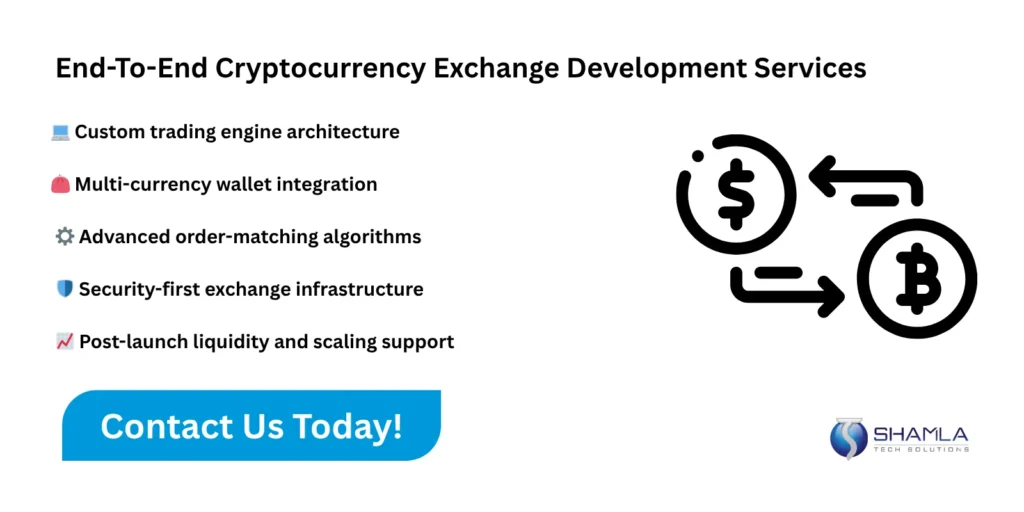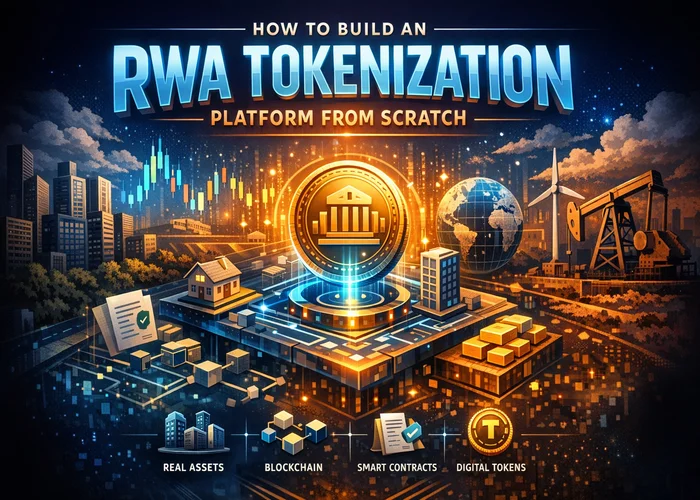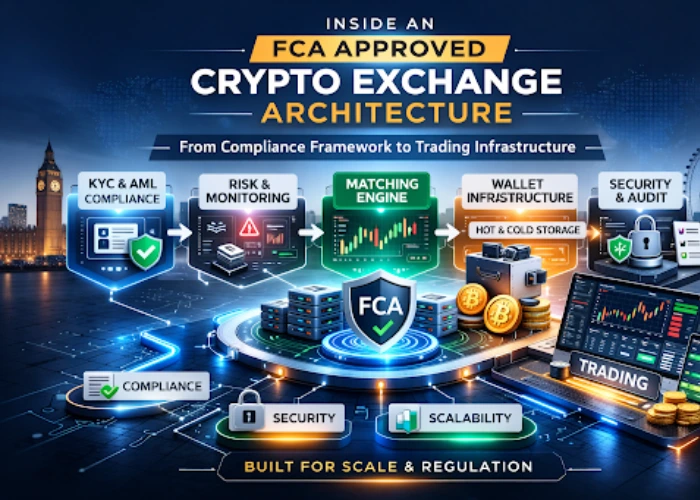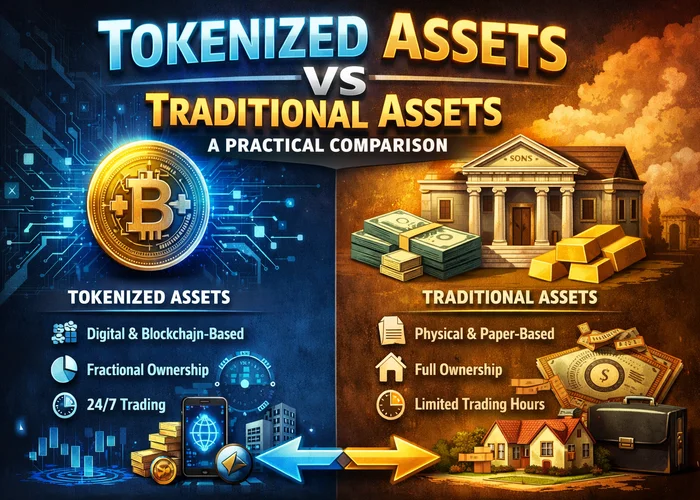Understanding Cryptocurrency Exchange Development
What Are Cryptocurrency Exchanges?
Exchanges let users purchase, sell, and trade cryptocurrencies and digital assets. Bitcoin, Ethereum, and thousands of altcoins are traded on these platforms, which provide liquidity, price discovery, and safe transaction processing.
Exchanges use advanced order matching engines, wallet systems, security protocols, and user interfaces to make trading easy. Professional cryptocurrency exchange software development is needed to meet market demands, security, and regulatory compliance due to the complexity of these systems.
Types of Cryptocurrency Exchanges
Centralized Exchanges (CEX):
Decentralized Exchanges (DEX):
Hybrid Exchanges:
- To optimize trading, hybrid exchanges balance security, user control, speed, and liquidity.
- To implement each model securely, crypto exchange platform developement are needed.
Why Choose Professional Crypto Exchange Development Services?
Techniques and Experience
Professional development services offer years of blockchain, cryptocurrency, security, and exchange architectural expertise. This experience guarantees your platform uses industry best practices, avoids common mistakes, and uses cutting-edge solutions.
A credible crypto exchange development business has launched several platforms, overcome legal issues, established strong security measures, and understood market dynamics, which speeds up development and enhances platform quality.
Security, Compliance
Security is key while creating bitcoin exchanges. Professional developers use cold and hot wallet management, 2FA, encryption, DDoS defense, anti-phishing, and continuous security monitoring.
Regional regulatory compliance varies greatly. Expert developers ensure your platform fulfills KYC, AML, reporting, data protection, and regulatory audit trails.
Performance and Scalability
Time and Cost Savings
Core Features of Professional Cryptocurrency Exchanges
Advanced Trading Engine
The order matching engine forms your exchange’s heart, processing buy and sell orders with high speed and accuracy. Professional development creates engines capable of handling thousands of transactions per second, supporting multiple order types (market, limit, stop-loss, etc.), ensuring fair price discovery, and maintaining order book integrity.
Real-time order matching, low latency execution, and reliable performance during high-volume periods distinguish professional platforms from amateur implementations.
Multi-Currency Support
Modern exchanges support diverse cryptocurrencies and trading pairs. Crypto exchange software development services integrate multiple blockchain protocols, implement various wallet systems, support token standards (ERC-20, BEP-20, etc.), and enable seamless addition of new cryptocurrencies as the market evolves.
Fiat currency integration through payment gateways, bank transfers, and credit/debit cards expands accessibility and market reach, particularly for users new to cryptocurrency trading.
Comprehensive Security Infrastructure
Secure crypto exchange development implements multiple security layers protecting user assets and data:
- Wallet Security: Separation of hot wallets (for immediate transactions) and cold wallets (for secure asset storage), multi-signature wallet support, and automated security protocols minimize vulnerability to theft.
- Authentication Systems: Two-factor authentication, biometric verification, email confirmations for sensitive actions, and IP whitelisting protect user accounts from unauthorized access.
- Data Encryption: End-to-end encryption for data transmission, encrypted database storage, and secure key management protect sensitive information.
- DDoS Protection: Robust infrastructure withstands distributed denial-of-service attacks that attempt to overwhelm platforms during critical trading periods.
- Security Audits: Regular penetration testing, vulnerability assessments, and third-party security audits identify and address potential weaknesses before exploitation.
User-Friendly Interface
Intuitive design is crucial for attracting and retaining users. Professional cryptocurrency exchange software development creates interfaces featuring clean, responsive layouts, real-time price charts and analytics, easy navigation for beginners, advanced tools for professional traders, mobile-responsive design, and customizable dashboards.
The interface should accommodate both novice users making their first trades and experienced traders executing complex strategies simultaneously.
Liquidity Management
Admin Panel
Comprehensive administrative dashboards enable efficient platform management through user account oversight, transaction monitoring, fee structure configuration, cryptocurrency listing management, security monitoring, and reporting tools.
Effective admin panels streamline operations, reduce management overhead, and provide visibility into platform performance.
The Cryptocurrency Exchange Development Process
Phase 1: Planning and Consultation
Comprehensive consultation lays the groundwork for project development. Developers help you define business goals and target markets, choose exchange models (centralized, decentralized, or hybrid), identify features and integrations, set budget and timeline restrictions, and plan regulatory compliance.
Proper planning avoids costly mid-project modifications and aligns corporate goals and technical implementation.
Phase 2: Architecture Design
Technical architects optimize performance, security, and scalability in system architecture. Choose technology stacks, build database schemas, develop microservices architecture, set security procedures, and create infrastructure blueprints.
Scalable crypto exchange development requires proper architecture design to allow growth without platform rebuilds.
Phase 3: Development and Integration
Developers construct platform components according to designs. This phase involves trading engine development, wallet systems, user interfaces, payment gateway integration, API endpoints, administrative tools, and security.
Cryptocurrency exchange software development uses Node.js, Python, or Java for backend systems, React, Angular, or Vue.js for frontends, MongoDB, PostgreSQL, or MySQL for databases, WebSocket for real-time data, and blockchain integration libraries for cryptocurrency support.
Phase 4: Security Testing and Implementation
Security is interwoven into development, but distinct implementation phases provide complete protection. This comprises security audits, penetration testing, firewalls, DDoS protection, backup and disaster recovery, and monitoring and alarm systems.
Before launch, rigorous testing finds flaws, protecting user assets and platform reputation.
Phase 5: Testing/QA
Functional testing of all features, performance testing under various load conditions, user acceptance testing, security testing and vulnerability scanning, and cross-browser and device compatibility testing ensure platform stability and performance.
Professional QA processes find and fix errors before users do, assuring seamless launches.
Phase 6: Launch and Deploy
Successful testing leads to production platform deployment. This includes setting up production servers, monitoring systems, support infrastructure, final security checks, and staggered rollouts.
Many cryptocurrency development company propose soft releases with small user bases before public debuts to refine depending on real-world usage.
Phase 7: Post-Launch Care
White-Label Crypto Exchange Solutions
White-label solutions?
White-Label Solutions Benefits
- Launch in weeks rather than months, pre-built platforms provide faster market entry and income growth.
- Compared to custom builds, shared development costs across numerous clients lower per-client prices.
- Proven Technology: Multiple deployments have tested and polished white-label solutions, lowering technical risk.
- Core platforms are updated by providers to provide security patches and feature updates without additional development costs.
Customization Options
Excellent white-label providers customize branding (logos, colors, themes), feature selection and configuration, trading pair customisation, fee structure configuration, integration with existing systems, and unique functionality development as needed.
This flexibility lets companies launch cryptocurrency exchanges with distinct market positioning and established technologies.
Crypto Exchange Mobile App Development
The Value of Mobile Apps
Mobile App Features
All core exchange features optimized for mobile interfaces, biometric authentication (fingerprint, face recognition), push notifications for trades and alerts, QR code scanning for wallet addresses, offline portfolio viewing, and seamless synchronization with web platforms are included in comprehensive mobile
Mobile-first design recognizes that many users, especially in emerging areas, use smartphones exclusively for trading.
Regulatory Compliance in Exchange Development
Regulatory regulations vary by jurisdiction and greatly affect cryptocurrency exchange platform development.
- Regulations to Consider: Requirements for licensing Many jurisdictions require money transfer, securities dealer, or specialized cryptocurrency exchange licenses for cryptocurrency exchanges.
- KYC and AML Compliance: Most companies must verify identities, keep customer records, monitor transactions for questionable activity, and report to regulators.
- Data Protection: GDPR in Europe, CCPA in California, and comparable rules worldwide require explicit consent, data encryption and protection, data access and deletion, and secure data storage.
- Tax reporting: Many jurisdictions require exchanges to report user trading activity to tax authorities, requiring full transaction tracking and reporting.
- Consumer Protection: Risk disclosure, terms of service clarity, dispute resolution, and fund segregation are often regulated.
Compliant crypto exchange development firm services reduce legal risk and enable regulated market operations.
Technology Stack for Crypto Exchange Development
Backend Technologies
- Programming Languages: Node.js offers excellent performance for real-time applications and extensive cryptocurrency libraries. Python provides robust security features and data processing capabilities. Java delivers enterprise-grade reliability and scalability. Go (Golang) enables high-performance, concurrent systems.
- Frameworks: Express.js (Node.js), Django/Flask (Python), Spring Boot (Java), and Gin (Go) accelerate backend development with proven architectural patterns.
- Databases: PostgreSQL and MySQL offer reliable relational database options. MongoDB provides flexible document-based storage. Redis enables high-speed caching and session management.
Frontend Technologies
- Frameworks: React provides component-based, performant interfaces. Angular offers comprehensive framework features. Vue.js delivers lightweight, progressive development capabilities.
- Real-Time Updates: WebSocket implementations enable live price feeds, order book updates, and trade execution confirmations without page refreshes.
Blockchain Integration
Security Technologies
Cost Factors in Crypto Exchange Development
Development Costs
- Custom Development: Complete custom platforms range from $50,000 to $500,000+ depending on complexity, features, team location, and timeline requirements.
- White-Label Solutions: Pre-built platforms cost $10,000 to $100,000 for licensing and customization, offering significant savings for standard requirements.
- Ongoing Development: Continuous feature additions, improvements, and maintenance typically cost $5,000 to $30,000+ monthly.









